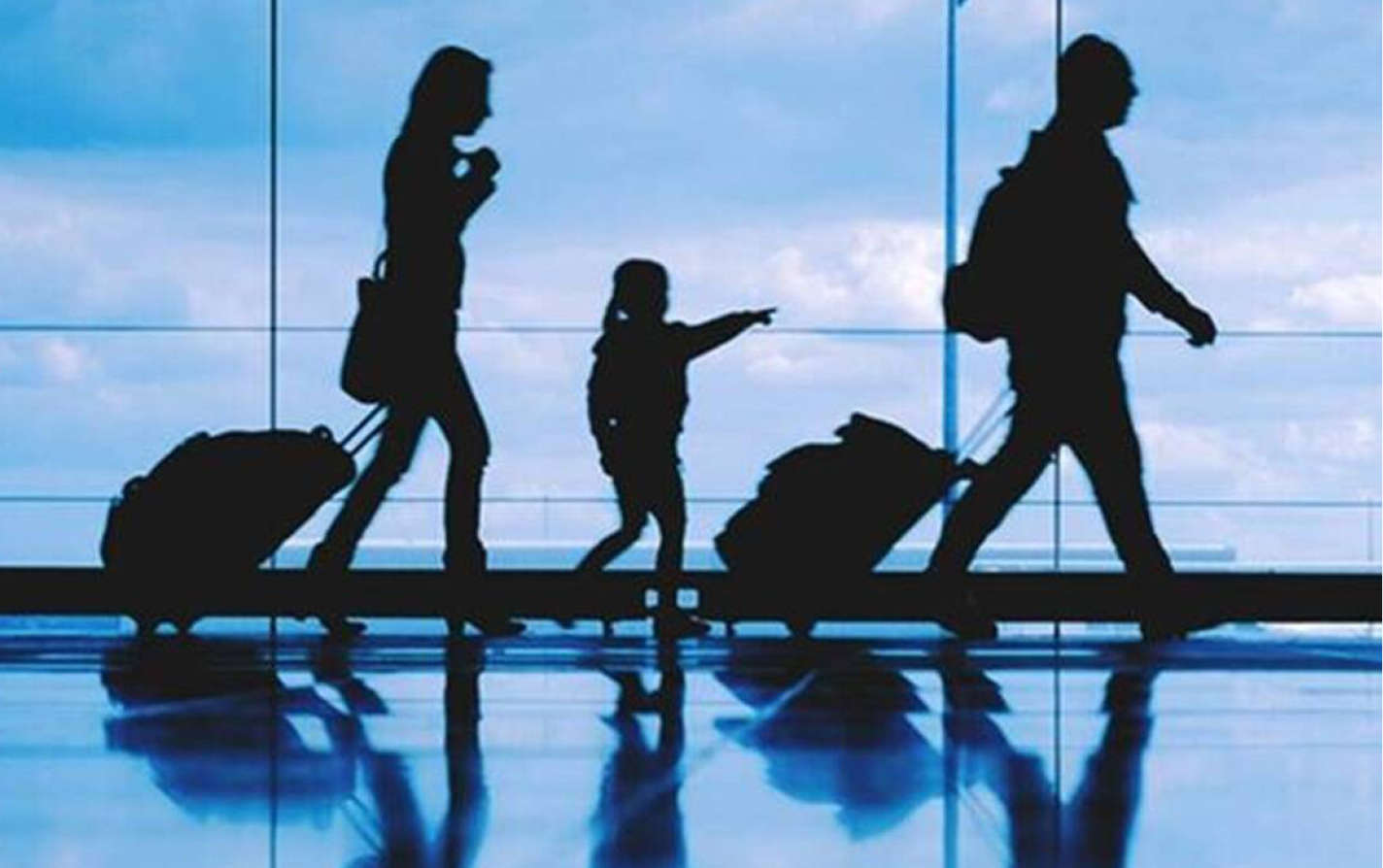The ruthless march of COVID-19 throughout the globe is first and foremost a human tragedy, affecting the health of hundreds of thousands of people. The consequences of measures taken worldwide to curb the pandemic are having a growing impact on the global economy. This article aims to offer key highlights on the impact being felt by the industry due to factors including, but not limited to, the migratory nature of the hospitality work force and the pause on global travel, tourism and restaurant services.

Business impact on travel and tourism:: Accounting for the unprecedented travel restrictions, the United Nations World Tourism Organization expects that international tourists will be down by 20% to 30% in 2020, when compared to the last year. To put this into context, they also drew a comparison from the SARS outbreak in 2009, which led to a decline of just 0.4% of the international tourist market. The hospitality industry accounts for 10% of the global GDP.Disruptions to production, initially in Asia, have now spread to supply chains across the world. All businesses, regardless of size, are facing serious challenges, especially those in the aviation, tourism and hospitality industries, with a real threat of significant declines in revenue, insolvencies and job losses in specific sectors. Sustaining business operations will be particularly difficult for small and medium enterprises.
In India: The hospitality industry is likely to be hit hard. Experts suggest that domestic hotel companies will face a weak Q4 FY20 and a weaker Q1 FY21. March has borne the brunt of many large-scale cancellations across the corporate, MICE and leisure segments. Tier 2 and tier 3 hotel markets in India continue to witness a small erosion in business for now. Occupancies in at least the first half of March were only partially lower despite the spread of the virus in some states,
In Europe: Industry experts have attempted to predict the effect upon the global hotel industry for 2020, estimating a profit decline of 11-29%. The KHN, which represents bars, cafés and hotels, has said that the emergency measures to limit the spread of the virus are already causing a serious impact. Cancellations have risen by almost half – the KHN survey found that hospitality owners believe that they could make losses of 33% due to the emergency measures put in place by the government.
In China: Compared to 2019 figures, occupancy is down by as much as 68%. As China was the first market to deal with the coronavirus, it is also the first to show signs of stabilization. As per data, 87% percent of the country’s hotels are now open and occupancy is beginning to rise.
Other countries: Hotels across the U.S. are experiencing unprecedented booking cancellations due to the pandemic, which could eliminate up to four million posts (this accounts for 50% of all hotel jobs in America). The average occupancy in Italy is down by 96% ; the United Kingdom is down by 67%.
Impact on jobs in hospitality:: The World Travel & Tourism Council has recently warned the COVID-19 pandemic could lead to a cut 50 million jobs worldwide in the travel and tourism industry. As per an Oxford economics study, Asia is expected to be the worst affected and data suggests the industry could take many months to recover. Following travel bans, border closures and quarantine measures, many workers cannot move to their places of work or carry out their jobs which has effects on incomes, particularly for informal and casually employed workers. Given the current environment of uncertainty and fear, enterprises are likely to delay investments, purchases of goods and the hiring of workers. As per data, the impact on the Indian hospitality industry could render a majority of the people in hospitality in India, jobless. As a result of this pandemic, the Indian tourism industry is looking at pan India bankruptcies, closure of businesses and mass unemployment. Overall, it may be that the nature of hotels and restaurants will change to leaner and more efficient operations, where a balance between smart and skilled labour is sought after. Due to fear, a large part of the labour force is seeing a domestic-mass immigration, which means a majority of the front line staff at hotels will have moved back to their native areas. Temporary work forces will be the first to shrink, afterwhich the impact will be felt by permanent employees as hospitality companies may be hard-pressed to cut costs. This may lead to a large number of people changing their industry to go where the cash flow is quicker. This global exodus could have a severe impact on the talent pool and may not recover until confidence is reinforced by employers and governments alike. Only through a compassionate approach taken by businesses can the workforce be saved.
Managerial implications:: Most prominent theme that emerged was related to the skills of the employees. This was visible in the way experts felt about the vital learnings from the ongoing crisis, where multiskilling was considered as a latent solution to the issue of reduced redundancy and retaining employees in the long run. This reflects that going forward managers must take cognizance of the evolving practices related to the employees’ engagement in multiple job roles, which is expected to become a norm in hospitality and tourism. Research in past indicates that this may be achieved by delegation of additional responsibilities, on the job training, and across departmental work projects. The added advantage of multiskilling may also reflect in the form of retaining usefulness of employees during lean seasons or in low demand . Hygiene and sanitation remained a recurrent sub-theme throughout the responses, be it about foreseeable consumer behaviour or learnings for the industry and educators or trainers. The issue of hygiene has been well documented in tourism and hospitality literature . However, for a developing country like India that deals with issues like over-crowdedness and congestion, it is too serious a concern to be overlooked . This issue, in the light of the recent publication by Lancet (Lodder and de Roda Husman, 2020), where the researchers have speculated presence of SARS-COV-2 in human waste water becomes more consequential if not managed effectively. The seriousness of this issue can’t be emphasised enough and regardless of the type and size of the establishment, next crucial aspect that is likely to govern the survival would be the presence of standards of waste management and effective sanitation practices visible in all forms of hospitality operations. Hospitality management must consider wearing masks mandatory until a sustained solution, for instance the most contemplated solution+COVID-19 vaccine, is achieved. Irrespective of type of operations, managers must consider creating dedicated task forces among employees to address hygiene issues and related training and awareness creation. Basing on the responses received it seems clear now that there is stark need of formulating national standards for tourism and hospitality enterprises, and their implementation and monitoring should be effectively carried out, failing that should invite relative penalties. The need of national standards also resonate with recommendations . One such standard practice could be mandatory temperature checking and its record keeping at the entry and exit points of work places and institutions. The notion of retaining optimism and hopes of revival remained high.
Furthermore, the industry heads reflected on the immediate challenge of managing fixed costs when the enterprises are continuing to lose business. Lodging and food service sectors are known to have higher fixed costs and are sensitive to the shocks and instabilities in the market . In this regard the responses conveyed similar challenges that the organisations faced.
“COVID19, now globally carrying the status of a pandemic, has led to a worldwide crisis with its effects on the hospitality industry potentially heavier than those of 9/11, SARS, and the financial crisis in 2008. Challenges faced by many of the organisation in today’s scenario is very common -Managing Fixed Expenses, Payroll, Morale of the Employees and specially Cash Flow”.
“As the payment cycle of the hospitality industry varies from 90 to 60 days except the weddings so working capital to meet out the fixed cost is a challenge”.
“Various cost cutting measures implementation wherever it is possible. Can’t do much on fixed costs.”
These reflections are indications of the acknowledgement by the industry actors of the ongoing struggle and the need to keep the business running while facing the uphill task of meeting their expenses on regular basis. To add to this, the industry is familiar with the variations in demand and it can be argued that unlike other sectors that may ensure steady income, tourism and hospitality oriented businesses are aware of the potential slack times arising out of various reasons like seasonal demand and crises. Employees and employers likewise need to strengthen their competencies and should sail through these tough times, also because if cost cutting is done, for instance, in the form of employee reduction or layoffs, the re-hiring would be needed as and when the industry recovers. Retaining employees is argued to be less expensive than letting employees leave . This argument holds relevance particularly in the Indian context where “it is noted that reducing staff or laying off employees may not be the most favored action”.
Impact on the talent pool:: With the incumbent lay-offs, it is possible to offer upskilling opportunities to front-line staff, so as to beef up their resumes and increase their probability in securing a job at the time of the market up-turn. This could curb mass-migration to the other industries that could increase the gestation period of the hospitality market’s recovery phase by reducing specialized workforce. In this scenario, the training and upskilling of a replacement batch would take a longer time to recover – causing companies innumerable issues. However, innovative methods can be applied to aid the market in boosting and preserving the numbers for when the market finally normalizes.
Summary:: At no point in history has such an incident occurred, where businesses in almost 200 countries have been paralyzed due to a common factor. Only time will truly tell the full impact of COVID-19 on the global business scenario. The landscape of hospitality could possibly change forever, and in order to stay relevant, we must find creative ways to secure our industry. A vast amount of research on global hospitality trends is being shared on the internet, which can help inspire paradigm-shifting ideas. However, adoption of those ideas by the market will be key in finding the light at the end of the tunnel. It is possible that employers and governments who remain connected and concerned about their resources decide to retain a majority of their people, thereby reducing the stress on their HR cycle and giving them the competitive advantage. Tourism and hospitality industry thrives on the patterns of visitations and a considerable efforts are placed by decision makers to attract visitors to support the sector and enhance the multiplier effect from the industry. But due to the ongoing situation travel restrictions are being observed at national and international levels. These travel bans, border closures, events cancellations, quarantine requirements and fear of spread, have placed extreme challenges on tourism and hospitality sector . Air travel, for instance, has been regarded as an amplifying and accelerating factor for influenza and this segment has witnessed significant curtailments as the need of personal safety and survival has become pivotal . It has also prominently reduced the need for leisure travel and search for hedonistic getaways. Despite the enormous blow, the sector is salvaging resources and ways to remain afloat for now, be it sturdier negotiations with suppliers for mutual sustenance, extensive cost reduction practices, or minimum mandatory period for accommodation bookings when visiting tourism destinations. Correspondingly, accommodation providers have extended support, mostly at some price, for those needing isolation during quarantine period and to those who are involved in treating COVID patients and cannot return to their usual place of residence. These initiatives, for now, indicate the ad hoc coping mechanisms adopted by the industry and appear to remain in place until some stability is attained.
It is possible to offer upskilling opportunities to the front-line staff, so as to beef up their resumes and increase their probability in securing a job at the time of the market upturn. This could curb mass-migration to other industries that could increase the gestation period of the hospitality market’s recovery phase by reducing specialized workforce.






















